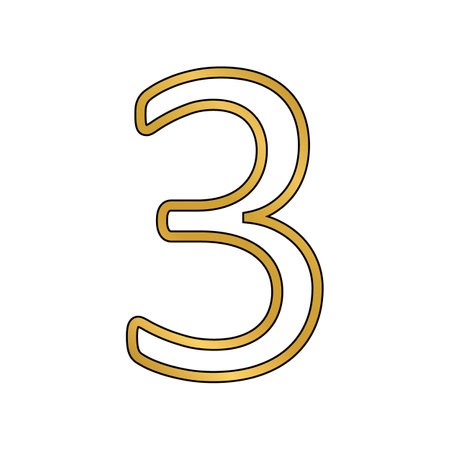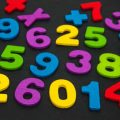1. Introduction: Name Numerology Meets British Society
Name numerology, with its mystical allure and age-old roots, has fascinated individuals from all walks of life for centuries. Yet, when this esoteric tradition crosses paths with the uniquely stratified landscape of British society, intriguing questions arise. How does a practice based on numbers and destiny interact with a nation historically obsessed with lineage, social standing, and subtle class codes? In this opening exploration, we set the stage for a journey through both the mathematical world of name numerology and the deeply entrenched tiers of the British class system. Our aim is to uncover not only their points of connection but also the striking contrasts that emerge when personal identity, as revealed through numbers, meets the collective identity shaped by class. Whether you’re an enthusiast of spiritual sciences or a keen observer of British culture, this discussion promises fresh perspectives on how ancient beliefs adapt—and sometimes collide—with enduring societal structures.
2. A Primer on Name Numerology
Name numerology, often considered both a mystical and analytical practice, is rooted in the belief that names carry inherent vibrational energies that can influence an individuals personality, destiny, and social interactions. The origins of name numerology can be traced back to ancient civilisations such as the Babylonians and Greeks, with Pythagoras – the renowned Greek mathematician and philosopher – being one of its earliest proponents. In his time, numbers were not merely mathematical symbols but carriers of cosmic significance.
The methodology behind name numerology is relatively straightforward yet layered with symbolic meaning. Each letter of the alphabet is assigned a numerical value, typically from 1 to 9. By converting the letters of a person’s name into numbers and then summing them according to specific formulas, practitioners interpret core aspects of character and fate. Below is a simple table illustrating the basic Pythagorean system used in the UK:
| Number | 1 | 2 | 3 | 4 | 5 | 6 | 7 | 8 | 9 |
|---|---|---|---|---|---|---|---|---|---|
| Letters | A, J, S | B, K, T | C, L, U | D, M, V | E, N, W | F, O, X | G, P, Y | H, Q, Z | I, R |
This systematic approach allows for nuanced interpretations—someone named “William” for instance would have their name broken down into numbers using the table above and then analysed through reduction and summation techniques commonly accepted in British numerological circles.
The cultural fascination with name numerology in the UK reflects a unique intersection of tradition and modern curiosity. While historically entwined with esoteric societies and upper-class parlours during the Victorian era, today’s British society engages with numerology in more diverse contexts—from baby naming trends among middle-class families to celebrity rebrandings seeking public favour. The enduring appeal lies in both its promise of self-discovery and its subtle challenge to rigid social constructs like the British class system.

3. The Architecture of the British Class System
To understand the interplay between name numerology and the British class system, it’s essential to first appreciate the nuanced architecture of class itself in Britain. The British class system is a storied social framework, shaped over centuries by historical events, economic shifts, and cultural traditions. At its apex sits the aristocracy—those with inherited titles, grand estates, and often a lineage entwined with the nation’s political and cultural history. This group has long set the tone for what is considered “proper” in manners, education, and even naming conventions.
Beneath the aristocracy lies the upper-middle class: professionals such as doctors, lawyers, academics, and senior civil servants. Education remains a definitive marker here, with many having attended elite public schools (confusingly private in name) like Eton or Harrow, followed by Oxbridge or other Russell Group universities. Accent and elocution are powerful signifiers; Received Pronunciation (RP) is often associated with privilege and authority—a verbal badge that opens doors or raises eyebrows depending on context.
The middle class itself is broad, encompassing those in white-collar professions who may not have old money or landed heritage but who value home ownership, stable employment, and educational aspiration. The postcode—where you live—functions almost like a modern coat of arms. Certain London postcodes (think SW1 or NW3) are shorthand for affluence just as surely as a double-barrelled surname signals pedigree.
At the base of the traditional hierarchy sits the working class: those engaged in manual labour or lower-paid service roles. Here, community bonds run deep, regional accents thrive unabashedly, and local football teams can matter more than ancestral crests. Social mobility has increased over recent decades, but markers like accent and address can still influence perceptions of status in subtle yet significant ways.
It’s worth noting that modern Britain is increasingly fluid; celebrity culture, globalisation, and shifting economic realities have blurred some boundaries. Yet echoes of the old system persist in everyday life—from dinner party conversations to job interviews—demonstrating how deeply embedded these social cues remain. In this context, names themselves can act as social signifiers; they are not merely labels but carriers of aspiration or tradition, sometimes reinforcing class boundaries through subtle cultural codes.
4. Points of Connection: Where Numerology Intersects Class
In the context of Britain’s layered social hierarchy, the intersection of name numerology and the class system is both curious and complex. At its core, both systems assign meaning to names, whether through lineage or numbers, and these meanings can shape perception, opportunities, and self-identity. Let us examine how name, social standing, inherited titles, and numerological significance might influence, reflect, or challenge traditional class boundaries in Britain.
Name as Identity: Social Standing and Symbolism
Names in Britain often act as cultural markers. A double-barrelled surname or a moniker steeped in aristocratic heritage instantly signals upper-class status. Meanwhile, numerologists argue that each letter carries vibrational energy that influences destiny. When these two perspectives are combined, a name is no longer just an indicator of family lineage but also a source of personal power—or limitation—according to its numerical sum.
Inherited Titles and Numerological Influence
The British peerage system attaches immense significance to inherited titles such as “Duke” or “Baroness.” These titles not only denote rank but also come with expectations regarding behaviour and opportunity. Intriguingly, when analysing such titles numerologically, one may find that their numerical values suggest traits or destinies that reinforce (or occasionally contradict) their societal roles. For instance:
| Title/Name | Traditional Class Significance | Numerological Value | Numerology Interpretation |
|---|---|---|---|
| Duke | Highest aristocracy | 12/3 | Creativity, leadership, sociability |
| Barker (common surname) | Working/middle class origins | 16/7 | Introspection, analysis, individuality |
| Catherine (royal given name) | Upper-class/royal association | 35/8 | Power, authority, ambition |
| Mason (modern middle-class) | Aspirational middle class | 20/2 | Sensitivity, partnership, adaptability |
Navigating Boundaries: Challenge or Reinforcement?
The interplay between numerology and social standing can serve to reinforce existing class boundaries—names associated with high numbers of power or authority often coincide with upper-class backgrounds. However, there are notable exceptions where individuals from modest origins carry names with strong numerological significance and defy social expectations by achieving prominence or influence.
Anecdotal Observations from Modern Britain
Tales abound of those who have altered their names for professional reasons—sometimes to sound more “posh,” other times to embody numerological auspiciousness. In some cases, these changes yield real shifts in perception and opportunity within British society. The blending of numerological belief and social mobility reveals unexpected avenues by which individuals seek to transcend class constraints.
5. Points of Contrast: Divergences in Perception
When it comes to name numerology, the British class system reveals a fascinating tapestry of divergent attitudes. Scepticism is particularly pronounced among the upper-middle and established upper classes, where rationalism and tradition often dominate worldviews. For many in these circles, numerology is frequently dismissed as unscientific or frivolous—a curiosity rather than a credible influence on one’s destiny. This sceptical stance is sometimes reinforced by an educational emphasis on empirical thinking, with institutions and social networks subtly discouraging overt interest in esoteric beliefs.
In contrast, certain segments within the working and lower-middle classes may exhibit more openness or even quiet reverence towards numerological ideas. Here, tradition can play a dual role—both as a bulwark against new fads but also as a preserver of old folk customs and superstitions. Family stories, regional folklore, and community rituals occasionally keep numerological practices alive under the surface, woven into christenings, weddings, or even the choice of house numbers.
Meanwhile, Britain’s creative and bohemian enclaves—often straddling class boundaries—demonstrate yet another approach: openness to the esoteric. Artists, musicians, and free-thinkers are more likely to experiment with alternative spiritualities, including numerology. In these spaces, exploring one’s “name number” might be seen as an act of self-discovery or personal myth-making rather than superstition.
Generational change adds another layer of complexity. Younger Britons, less bound by rigid class identity or traditional scepticism, may engage with numerology through digital platforms, treating it as a playful tool for self-expression or identity curation. Conversely, older generations might retain a private curiosity but publicly downplay any serious belief due to lingering social taboos.
Ultimately, the British response to name numerology reflects broader cultural tensions: between empiricism and enchantment, tradition and reinvention. Whether treated with raised eyebrows or open arms, numerology continues to serve as a revealing mirror of Britain’s evolving relationship with class—and its enduring appetite for both reason and ritual.
6. Contemporary Context: Numerology and Class Identity Today
In modern Britain, the interplay between name numerology and class identity has found a curious place within society. Far from being merely an esoteric or historical pursuit, numerology has woven itself into contemporary culture—sometimes as playful self-exploration, sometimes as a subtle nod to status among those in the know. On one hand, pop culture has embraced numerology with a tongue-in-cheek spirit: celebrity baby names are dissected on talk shows, and social media quizzes promise to reveal your “destined path” based on your name’s numbers. Such trends cut across class boundaries, inviting participation from all walks of life in what is often seen as harmless fun or a quirky pastime.
Yet, beneath this playful veneer lies a more nuanced engagement among certain social elites. In some circles—particularly those who value tradition, heritage, or the mystique of the upper echelons—numerological considerations occasionally surface when choosing names for children, businesses, or even residential addresses. Here, numerology is less about fortune-telling and more about projecting an image of discernment, legacy, or aspiration. This quiet seriousness contrasts sharply with the light-hearted approach found elsewhere, highlighting how class identity can shape the meaning and purpose attached to such practices.
Moreover, the British penchant for irony means that references to numerology might be made with a wink and a nudge at dinner parties or in lifestyle magazines. It is this blend of sincerity and satire—a very British duality—that keeps name numerology both relevant and elusive in public discourse. Ultimately, while few would argue that numerology holds sway over fate in twenty-first-century Britain, its presence in everything from playground banter to discreet family discussions suggests it continues to reflect—and refract—the intricate contours of class identity today.
7. Conclusion: Unpacking Identity in Modern Britain
The interplay between name numerology and the British class system offers a fascinating lens through which to examine identity, tradition, and social change in the UK. On the surface, these systems seem worlds apart: one rooted in ancient mystical beliefs about numbers and names, the other embedded in centuries of social hierarchy and cultural codes. Yet, both serve as tools—sometimes consciously, sometimes unconsciously—for individuals and communities to define themselves and navigate society.
Name numerology invites a kind of personal introspection that contrasts sharply with the often rigid external labels imposed by class. In a contemporary British context, where traditional markers of class are being questioned or redefined, the allure of numerology lies partly in its promise of agency. It suggests that destiny can be shaped by something as intimate as ones name, providing an alternative narrative to the inherited constraints of class. This resonates particularly in multicultural urban centres like London or Manchester, where identity is fluid and layered.
At the same time, remnants of the class system continue to influence how names—and by extension, their numerological interpretations—are perceived. Names still carry social weight; certain surnames or given names may evoke assumptions about background, education, or even character. Numerology does not erase these preconceptions but rather intersects with them in unpredictable ways. For instance, a traditionally upper-class name analysed through numerology might yield traits that challenge established stereotypes.
What emerges from this confluence is a portrait of modern Britain that is both complex and dynamic. The persistence of tradition—whether through family names or class signifiers—sits alongside a growing appetite for personal meaning-making. People are increasingly willing to reinterpret old systems for new contexts: using numerology apps on their smartphones while still navigating the subtle codes of accent and etiquette at work or in social settings.
Ultimately, exploring name numerology alongside the British class system underscores how identity in the UK is negotiated between history and innovation. It highlights both our desire for continuity with the past and our capacity for reinvention. As Britain continues to evolve socially and culturally, it is this interplay—between inherited structures and individual expression—that will shape what it means to belong here.
In reflecting on these connections and contrasts, we see that neither name nor class alone defines a person’s path. Instead, it is the ongoing dialogue between personal choices and collective traditions that gives modern British identity its distinctive texture—a tapestry woven from both numbers and names, privilege and possibility.


